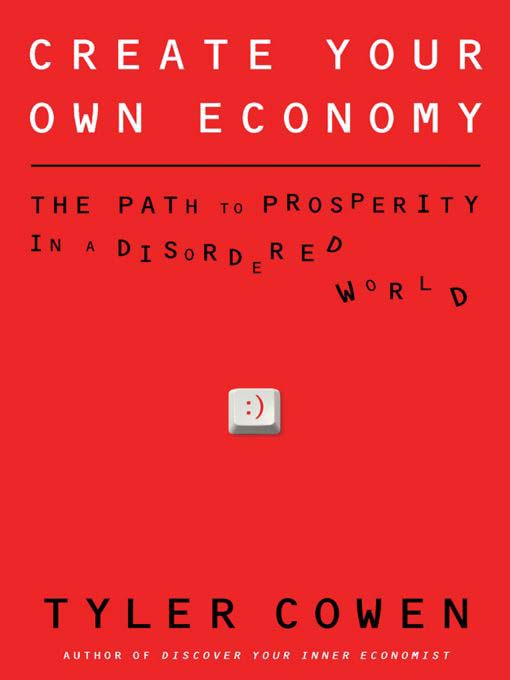One of the most respected behavioral economists in the world and coauthor of the "best economics blog in the universe"
How will we live well in a super-networked, information-soaked, yet predictably irrational world? The only way to know is to understand how the way we think is changing.
As economist Tyler Cowen boldly shows in Create Your Own Economy, the way we think now is changing more rapidly than it has in a very long time. Not since the Industrial Revolution has a man-made creation—in this case, the World Wide Web—so greatly influenced the way our minds work and our human potential. Cowen argues brilliantly that we are breaking down cultural information into ever-smaller tidbits, ordering and reordering them in our minds (and our computers) to meet our own specific needs.
Create Your Own Economy explains why the coming world of Web 3.0 is good for us;...


